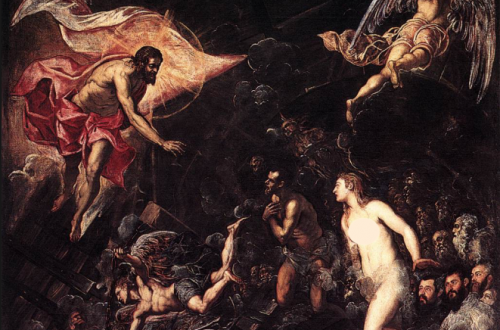The Lucky Wilderness
Leadership is broken because leaders are unbroken
Wilderness Wanderings Series:
Learning to Live the Zigzag Life
John Paine calls himself “the luckiest man in the world,” and most agreed with him some years ago.
When John was in the seventh grade he decided he would be physically strong, and he worked until he became a superior athlete who played for college football. Then he decided to transfer to a top ten engineering school and strive to become intellectually strong, and he succeeded by graduating Summa Cum Laude. Upon graduation, John married his high school sweetheart and started his family.
At the same time he decided he would become financially strong and determined to carve out his way by starting his own company, the first of many that he created and built into successful ventures. And all along the way he was spiritually strong, fully committed to Christ, leading his family to know the Lord, running his companies in a Christian way, becoming a teacher of God’s truth, and influencing his fellow business leaders with the Gospel.
John was definitely a strong man and what he calls a lucky man.
All went well until about fifteen years ago when John noticed some uncontrollable muscle spasms in his body and a growing physical weakness, even though he was working out and jogging regularly. His symptoms reached the point that he could no longer ignore them, so he went to be checked out medically.
After a number of tests, he finally learned the cause of his spasms and growing weakness…
He had Lou Gehrig’s Disease (medically known as ALS), a debilitating illness named for one of the greatest athletes in American sports history who died of this progressive and destructive illness.
John could see his future when he went to his new doctors: the progressive weakening of his muscles indicated by involutionary spasms called fasciculations, the gradual loss of all physical strength signaled by his increasing inability to walk or use his arms and hands, thus putting him in a wheel chair, and eventually denying his ability even to breathe as his diaphragm became compromised. However, his mind, a brilliant business mind, would never be touched. He would be fully aware of all that was happening to him as he lost a little more strength each day until the strong man became totally depleted and dependent. The lucky man had become an unlucky man.
When Good Luck Goes Bad
Today all the dire predictions the medical people made have come true. John hasn’t been able to walk for several years. He cannot use his arms or hands, his breathing is now assisted by a ventilator, and his strength is gone. He is totally dependent on others to do everything. The once uncommonly strong man is now uncommonly weak. Yet, one day when I was meeting with John and he told me about how he committed to build physical, intellectual, and financial strength to go with his spiritual strength, he finished by saying, “And today I am stronger than ever!” I was amazed when he said that. With all his strength gone, how can he be stronger than ever? The answer to that question is self-evident. The only way John has survived his ordeal and maintained his perspective and courage is by entering God’s presence and trusting Him deeply. Despite his physical condition, John finds superlative personal strength through the Lord to continue to serve Him even though he is paralyzed from the neck down. It is the Lord’s power that has made him stronger than ever.
How Do You Do It?
That strength is well known in Dallas among the many who have known Him both before and after his diagnosis. What has happened over the past nearly fifteen years is that large numbers of his business peers, professionals, and ministry leaders have come to John for help with their lives. They marvel at how John has maintained his spirit and exalted the Lord despite his limitations, and how he has grown stronger as he has grown weaker, so they come to him to learn and draw from God’s imparted wisdom.
Unbelievers have made appointments with John to ask him how he does what he does, how he has maintained a positive spirit and not grown bitter at God for what has happened to him. They ask him, “How do you do it? How can you give so much to others and be filled with joy despite what is happening to you?” For all who ask he has one answer: “I do it in the Lord’s power. At the end of my will and my power God shows up in a mighty way.” Then he tells them how they can have that same power for their weakness, both for eternity and for time.
Through his conversations with his peers, John has discovered that many have a distorted view of God. They don’t understand His grace and feel that they must meet His standards on their own. Many see God as judgmental, not loving and gracious. Often they are confused about the way their wives and children respond to them and don’t know how to resolve the conflicts that confront them. Many don’t know where to turn with their businesses as they struggle with the uncertainties of the marketplace, and John, with his years of experience walking with God and disciplined business thinking, has been able to help them greatly.
When Bad Luck is Good
John calls himself the luckiest man in the world because, as it turns out, he doesn’t think he’s unlucky at all. That is why this chapter is called “The Lucky Wilderness.” A company devoted to highlighting uncommonly inspirational people called Fotolanthropy, has made a film about John, titled “The Luckiest Man.”
John has certainly been in a wilderness, but he doesn’t think of this wilderness as a bad place. Instead he sees it as a transformative place where his heart was made whole. He is well aware of what he has lost. He longs to pick up and sip a cup of coffee on his own or take up his favorite pen and write in his journal as he once did or hold his wife’s hand just one more time. He cannot do these things ever again. Yet he calls himself “the luckiest man,” and he’s not just saying platitudes. He’s serious. He means it.
At the end of the film John makes a statement concerning his view of his life and explains why he calls himself “the luckiest man in the world.” Read John’s own words about how he views his “luck” in life.
“There it was, not more than 6ft in front of me, my greatest fear! I was attending my first ALS clinic to learn about all of the resources available for patients. I was surrounded by others, all at varying stages of progression of the disease. It was terrifying seeing their shuffling gaits, rolling wheelchairs and complete dependence on others; this would invariably be my future. . . . My instinctive reaction was to plea “Please, Please Dear Lord do not let that be me. Do not let me live just existing like that. . . . That was then, this is now. . . . This is what God said through His prophet Jeremiah from his book in 17:7-8, “Blessed is the man who trusts in the Lord, and whose trust is the Lord. For he will be like a tree planted by the water, that extends its roots by a stream and will not fear when the heat comes; But it’s leaves will be green, and it will not be anxious in a year of drought nor cease to yield fruit”(NASB). Even in the midst of extreme heat and drought He produces abundance. Green leaves and fruit in our lives represent Joy in the midst of adversity, Peace in the midst of turmoil, and contentment even while living with an incurable disease. You see, walking with God produces not just living but abundant living! It is without Him that we just exist. . . . God did answer my prayer in the ALS clinic that day, it just was in a better way than I could have expected. While all of those things I once feared have come true, my life is far from mere existence. The presence of God that produces abundant living is greater and trumps anything ALS can dish out or negative circumstances could ever produce. Those of you who are planted by the water and whose roots grow deep by His stream understand why I now live abundantly, without fear and proclaim to be The Luckiest Man in the World! I count it pure joy in living connected with my God so that I may fulfill my life’s purpose of helping others know and walk closer with Him.”
The Luckiest Man in the World
At the premiere of his film John said that if he had to make a choice between being physically whole or knowing God the way he does through his physical weakness, he would choose to remain as he is. ALS has brought him so very close to God that he doesn’t want to give this intimacy up.
While John cannot take a physical step, he has already taken his first spiritual step into God’s presence, where he lives on a daily basis because of his terrible disease. As you listen to John you understand that when he calls himself “The Luckiest Man” in the world, he means this fifteen-year ALS wilderness journey with God has made him the most blessed man in the world.
You see, the lucky wilderness is actually the blessed wilderness because it is through this that we enter into God’s temple. For John his wilderness is not a bad place, it’s a blessed place, it is the very temple of God where he has gone every day for fifteen years to meet with Him and know Him as he never could any other way.
Do not fear the wilderness, as John Paine once did. Fear missing the wilderness and not becoming “The Luckiest Man in the World.”.
From "The Lucky Wilderness" on www.leaderformation.org/blog
 About: The Broken Leadership Blog is about changing the leadership conversation from what we are doing with our hands to what God is doing through our hearts.
About: The Broken Leadership Blog is about changing the leadership conversation from what we are doing with our hands to what God is doing through our hearts.




